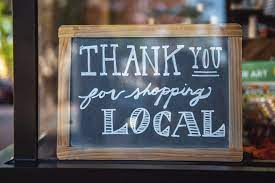How communities benefit when consumers shop local

Ideas about shopping are never set in stone, and the pandemic illustrated just how quickly consumer trends and opinions can change. Many individuals are now reevaluating how they spend their hard-earned money, particularly since inflation has affected just how far a dollar can be stretched. When consumers think about which stores to patronize, locally owned businesses may be the smartest option for a number of reasons – not the least of which is the way such enterprises benefit the communities they call home.
•More money kept in the community. Shopping locally means that more money will stay in the community. According to recent research from Civic Economics, local eateries return nearly 79 percent of revenue to the community, compared to just over 30 percent for chain restaurants. Overall, for every $100 spent at a local business, around $73 remains in the community, verus roughly $43 when shopping at a non-locally owned business.
•Get a personal touch. Local business owners typically are inclined to go the extra mile for their customers and are personally invested in the services and products they are selling. As a result, shopping locally tends to be a personalized experience. Furthermore, a local business owner may be more amenable to ordering products for specific clientele. Such personalized service is typically not accessible when shopping big box stores or other shops where owners are off-site.
•Lines are short. Waiting in long lines for checkout or to pick up merchandise ordered online can drain consumers’ energy and contribute to stress. Local businesses tend to have short lines and small crowds, which can lead to a more pleasant shopping experience.
•Generates tax revenue. Local businesses generate more tax revenue per sales dollar, according to Rubicon, a digital marketplace for waste and recycling businesses. Taxes paid by local small businesses go to support schools, parks, roads, and other programs that benefit the community as well.
•Support nonprofits. Local businesses often support good work in the community, such as nonprofit groups. These can include schools and sports teams, among other groups. According to Dr. Sue Lynn Sasser, professor of economics at the University of Central Oklahoma, studies indicate nonprofits “receive 250 percent more support from small businesses than larger ones.”
•Support other local businesses. Local business support other local businesses by buying and selling among each other. A local, independently owned restaurant may source its ingredients from local farms, which means visitors to such eateries are supporting multiple local businesses each time they dine out.
(Metro)



